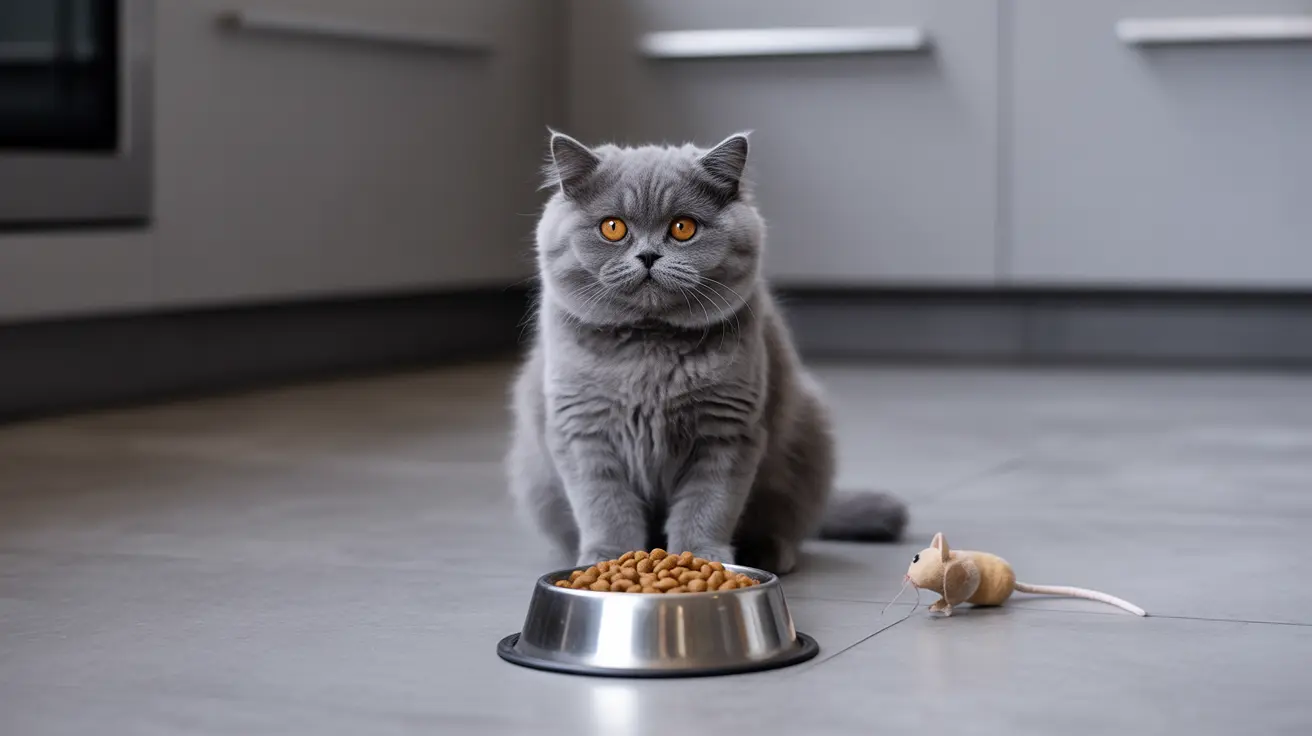When it comes to stress and eating habits, cats are quite different from humans. While people often reach for comfort food during stressful times, our feline friends typically respond to stress in the opposite way. Understanding whether cats stress eat and how they handle emotional situations can help pet owners better care for their furry companions.
Let's explore the complex relationship between cats, stress, and eating behaviors to help you better understand and support your pet's well-being.
The Truth About Cats and Stress Eating
Unlike humans, cats typically respond to stress by eating less, not more. When a cat experiences anxiety or stress, their natural response is often to decrease food intake or stop eating altogether. This behavior can be dangerous, as cats who don't eat for even a few days can develop serious health conditions like hepatic lipidosis (fatty liver disease).
Common stress triggers that may affect your cat's appetite include:
- Moving to a new home
- Introduction of new pets
- Changes in routine
- Loud noises or construction
- Veterinary visits
- Changes in the household
Boredom vs. Stress: Understanding the Difference
While cats rarely stress eat, they may overeat due to boredom, particularly in indoor environments. This behavior is often mistaken for stress eating but has different underlying causes. Bored cats may eat simply because there's nothing else to do, especially in homes where food is always available.
Signs your cat might be eating out of boredom include:
- Frequent visits to the food bowl
- Eating when attention-seeking
- Weight gain despite normal portions
- Reduced activity levels
- Excessive meowing around feeding times
The Role of Environment in Feline Eating Habits
A cat's environment plays a crucial role in their eating behavior. Cats are natural hunters who prefer to eat multiple small meals throughout the day. In multi-cat households, competition for resources can lead to altered eating patterns that might look like stress eating but are actually survival behaviors.
Creating an enriched environment can help prevent both stress-related appetite loss and boredom-related overeating.
Managing Your Cat's Eating Habits
To promote healthy eating patterns in your cat, consider these strategies:
- Establish regular feeding times
- Use food puzzles for mental stimulation
- Provide multiple feeding stations in multi-cat homes
- Create opportunities for exercise and play
- Monitor food intake and weight regularly
- Ensure quiet, safe feeding locations
Frequently Asked Questions
Do cats stress eat like humans do?
No, cats typically don't stress eat like humans do. In fact, stress usually causes cats to eat less or stop eating altogether, unlike humans who might turn to food for comfort.
Why does stress usually decrease my cat's appetite?
Stress triggers hormonal changes in cats that suppress appetite. This is a natural survival mechanism, as stressed animals in the wild need to stay alert rather than focus on eating.
How can I help my cat if it is stressed and refuses to eat?
If your cat stops eating due to stress, try offering favorite foods in a quiet, safe space. If the cat refuses food for more than 24 hours, consult a veterinarian, as prolonged food avoidance can be dangerous.
What causes my cat to overeat, and how can I prevent it?
Overeating in cats is often linked to boredom, lack of environmental enrichment, or irregular feeding schedules. Prevent it by providing regular exercise, mental stimulation, and measured portions at set times.
Can my cat be an emotional eater, and how can I tell if it's stress or boredom causing the behavior?
While cats can develop emotional eating patterns, it's usually due to boredom rather than stress. Look for signs like increased appetite during inactive periods, weight gain, and attention-seeking behavior around food to distinguish between stress and boredom-related eating.
Understanding your cat's eating patterns and their relationship with stress is crucial for maintaining their health. If you notice significant changes in your cat's eating habits, always consult with a veterinarian to rule out underlying medical conditions and develop an appropriate care plan.






